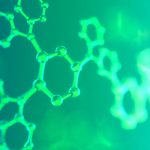
27 global sites currently open for enrollment
Clinical trial sites in Europe are now open for enrollment in Bristol and Manchester, England; Munich and Hamburg, Germany; Dublin, Ireland; and Gothenburg, Sweden, with additional sites in Europe expected in the coming weeks.
This means that PolarisDMD is now active in 7 countries! The Phase 3 PolarisDMD clinical trial of edasalonexent in Duchenne is enrolling boys ages 4 to 7 (up to 8th birthday), regardless of mutation type, who have not been on steroids for the past six months.
GalaxyDMD, MoveDMD, PolarisDMD?
GalaxyDMD is a recently-launched, open-label extension study. It is designed to collect long-term data in boys taking edasalonexent as they get older and to provide the opportunity to stay on the drug while edasalonexent is in clinical development. All boys in Phase 2 MoveDMD trial will transition to GalaxyDMD once they complete their final visit in MoveDMD, which can often be performed at the same visit. When boys in Phase 3 PolarisDMD trial complete the 12-month trial, they will also have the opportunity to transition to GalaxyDMD. For greater convenience, now that additional sites are open for the Phase 3 PolarisDMD study, there is flexibility for boys who participated in Phase 2 MoveDMD trial to relocate to a site closer to home, if desired. And Catabasis is especially pleased to share that once boys from MoveDMD and PolarisDMD enter GalaxyDMD, their brothers’ ages 4 to 10 (up to 11th birthday) who meet the inclusion criteria are also able to participate in GalaxyDMD and receive edasalonexent! Site visits for GalaxyDMD are once every six months.
EDASALONEXENT: THE POTENTIAL TO PRESERVE MUSCLE FUNCTION IN BOYS WITH DUCHENNE
The primary outcome measurement in Phase 3 PolarisDMD trial (also called the “endpoint”) is the North Star Ambulatory Assessment (NSAA), which was designed to assess muscle function in ambulatory boys affected by Duchenne. The NSAA consists of 17 different measures similar to activities in daily life, such as standing on one leg or rising from a chair.
About Edasalonexent (CAT-1004)
Edasalonexent (CAT-1004) is an investigational oral small molecule that is being developed as a potential therapy for all patients affected by DMD, regardless of their underlying mutation. Edasalonexent inhibits NF-kB, which is a key link between loss of dystrophin and disease progression in DMD. NF-kB has a fundamental role in skeletal and cardiac muscle disease in DMD. We are currently enrolling our global Phase 3 PolarisDMD trial to evaluate the efficacy and safety of edasalonexent for registration purposes. In our MoveDMD Phase 2 trial and open-label extension, we observed that edasalonexent preserved muscle function and substantially slowed disease progression compared to rates of change in a control period, and significantly improved biomarkers of muscle health and inflammation. Edasalonexent continues to be dosed in the open-label extension of the MoveDMD trial. The FDA has granted “orphan drug,” fast track, and rare pediatric disease designations and the European Commission has given orphan medicinal product designation to edasalonexent for the treatment of DMD. For a summary of clinical results, please visit www.catabasis.com.
Watch this video recorded in November 2016, Dr. Joanne Donovan answers our questions about edasalonexent (CAT-1004)
Learn more about PolarisDMD clinical trial
About Catabasis
Their mission is to bring hope and life-changing therapies to patients and their families. Their lead program is edasalonexent, an NF-kB inhibitor in development for the treatment of Duchenne muscular dystrophy. Their global Phase 3 PolarisDMD trial is currently enrolling boys affected by Duchenne. For more information on edasalonexent and the Phase 3 PolarisDMD trial, please visit www.catabasis.com or www.twitter.com/catabasispharma.
Join Catabasis mailing list > http://www.catabasis.com/patients-families/for-further-information.php
Edasalonexent is an investigational drug that is not yet approved in any territory.



